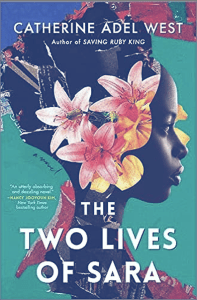 This workshop is designed to help you and students find all the large and small ways writing can help not only change your life but your students’ lives along with some DOs and DON’Ts on how to properly engage students of color.
This workshop is designed to help you and students find all the large and small ways writing can help not only change your life but your students’ lives along with some DOs and DON’Ts on how to properly engage students of color.
Blog Archives
Sharing the Reader’s Journey: Facilitating Book Club Podcasts
As choice reading continues to ensure that students of all abilities find enjoyment in reading, teachers incorporating choice reading into their curricula may seek ways to encourage student voice in discussions. This presentation will offer an idea to be applied for ongoing book club units or end-of-semester assessment. Students reading choice books trace their personal reactions to their reading to determine theme or genre-based connections with peer readers. They then apply podcast knowledge gained through class listening experiences to construct and record discussions of their reading journeys using the podcasting app Anchor.
Culminating Activities to Provide Connections
Traditionally, students have demonstrated their understanding and analysis of a text or topic through tests and essays. However, have you seen other teachers’ social media posts about One Pagers or Hexagons and weren’t sure how to introduce them to students? Hexagons and One Pagers can be used for single texts, to connect multiple texts. to explore themes, and across the curriculum. This presentation will share the basics of each activity and then give participants time to practice each one.
To Build a Story: Eleven Questions for Beginning Fiction Writers
How can you help your students write a good story from scratch? You offer them the basics of storytelling, one step at a time. With each step, you prompt them to build a story that is uniquely theirs. This workshop combines narrative theory with practical writing advice to help teachers help their students write an entertaining and emotionally resonant story.
Mimicking Isn’t Thinking: Putting Thinking Back in Writing Instruction
Students emerged from Covid classrooms, but not unscathed. More than ever, they were not engaging in their own learning. Our course team decided we couldn’t keep lamenting the fact that our tried-and-true approaches weren’t working anymore; we needed to adapt to teach the students in front of us now. Inspired by a book for math teachers on getting kids to think, we adapted our own approach to writing instruction.
Session Materials: Website
Let’s Talk Narrative
Personal narrative is often seen as an extra unit of writing because of the pressure on teachers to focus on informational and analytical writing. When we look at authentic writing, however, personal narrative is often blended with other genres. This session will focus on how writers often incorporate personal stories for the purpose of answering questions and feature lessons and activities from our upcoming book, Narrative as Navigation.
Cultivating the Next Generation of Teachers
A session to empower and celebrate the vocation of professional educator. We will celebrate what we do, brainstorm ways to celebrate young teachers (in particular) and brainstorm ways to keep young teachers in the field of education.
Session materials: Slides
Voices Silenced: Unpacking the Dilemma of Book Challenges in the Context of Culturally Responsive Pedagogies Through Content Analysis
This session will discuss the findings of a three-year dissertation study about the reasons for and rhetoric surrounding book challenges and bans. The presentation will discuss how this rhetoric interrupts culturally responsive teaching practices and silences marginalized voices. This session will also present effective ways of discussing these challenges with stakeholders.
The Perfect Match: Coupling Groundbreaking Texts with Revolutionary Pedagogy
As ELA teachers, we know the power of a great book to captivate students’ minds and hearts. By thoughtfully selecting and presenting texts that grapple with issues of race, identity and justice, we can ignite students’ curiosity, empathy and critical consciousness. But we can’t stop at just putting diverse books in students’ hands – we must also equip ourselves with the pedagogical tools to guide them through meaningful engagement and reflection.
In “The Antiracist ELA Classroom,” I laid out a vision and roadmap for transforming our English Language Arts classrooms into sites of antiracist education and empowerment. But how do we bridge the gap between theory and practice, between the pages of a professional book and the lived realities of our classrooms? In this session, I’ll book talk some great texts coupled with ready-to-implement anti-oppressive, antiracist instructional strategies.
Engaging Scholars through Counterstory and Connection
As education consistently adapts to the ever-changing landscape of the field and its student population, teachers and administrators are acknowledging the necessity of diverse curriculums as part of culturally relevant and responsive practices. However, we argue that this has been implemented to varying degrees of success, especially texts related to the Asian American Pacific Islander and Desi American (AAPIDA) community. As the United States continues to grow its racial diversity, the literacy opportunities within the education system need to represent it. We will report on the unique perspectives that teachers of color bring to the professional space as it comes to curriculum and instruction from our own personal experience as teachers within the AAPIDA community as well as research. We will offer a discussion about how counterstory narratives empower scholars and promote empathy across racial, ethnic, and socioeconomic groups and challenge ourselves to view all stories with complexity, nuance, and compassion. We will examine successful ways to conduct authentic moments of cultural connections and discuss how well-intentioned practices may result in inauthentic or exacerbate systems of harm for scholars. We will offer and report on practices that we have done to enable student discussion surrounding how their identities interact with the various systems while centering counterstories, authentic connections, and tending to the social and emotional needs of scholars.

